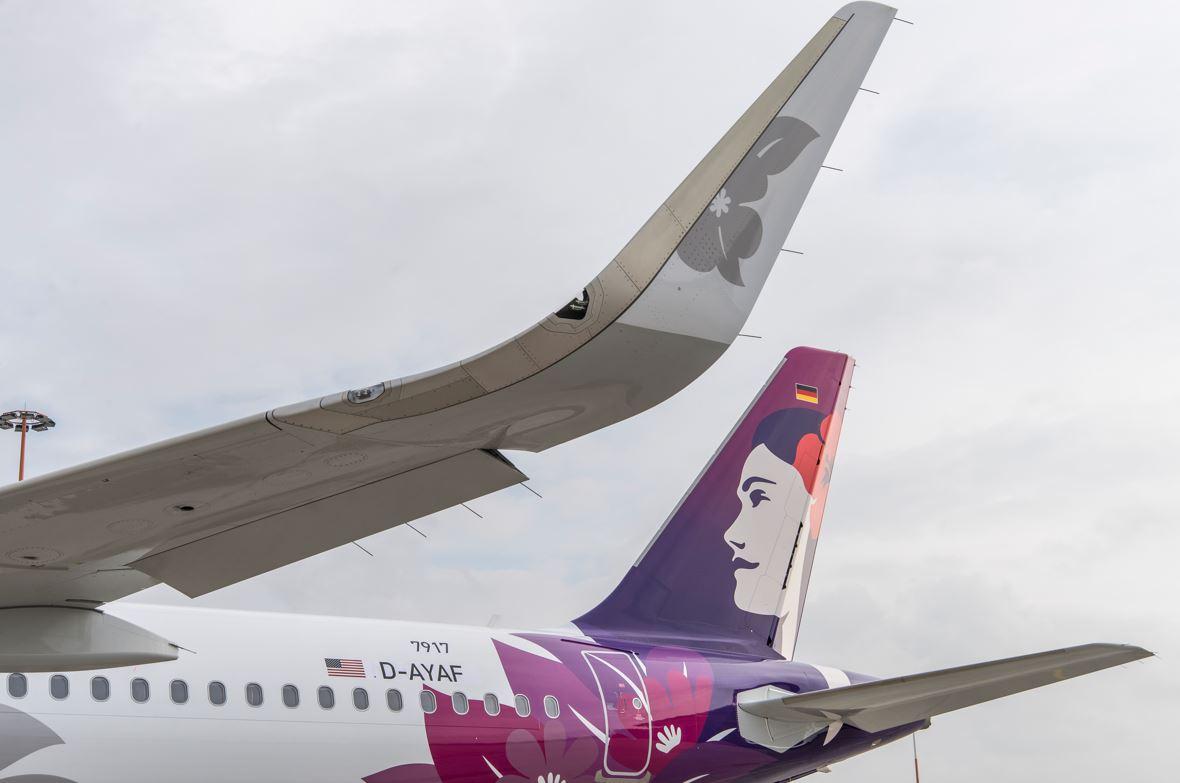
Hawaiian Airlines pilots have ratified a new four-year collective bargaining agreement (CBA) with an average 32% pay increase.
The carrier’s ALPA-represented pilots voted in favor of the new agreement by a margin of 65% with 93% of those eligible casting votes.
ALPA is positioning the new CBA, taking effect on March 2, as “industry-leading.” Additional enhancements include a $10 million ratification bonus, higher company retirement contributions, a new $2,500 health reimbursement account, increases in schedule flexibility, and other improvements in pilot quality of life, ALPA said.
The new contract covers Hawaiian’s new U.S. mainland contract flying for Amazon.com using a fleet of 10 Airbus A330 freighter conversions, scheduled to commence in fall 2023. The location of the continental U.S. base has yet to be announced. Hawaiian’s new fleet type of Boeing 787-9s, scheduled to begin their induction by the fourth quarter as eventual replacements for the A330s, are also covered in the pact.
“This new industry-standard agreement brings us into line with our peers and cements our status as one of the nation’s leading airlines,” said Capt. Larry Payne, chair of Hawaiian’s Master Executive Council (MEC). “I’d like to salute our negotiating team, who completed bargaining in under two years while also negotiating a complex freight agreement that is among the best in the industry.”
Hawaiian’s agreement comes amidst a flurry of other pilot contract negotiations. Delta Air Lines pilots are currently in a 30-day ratification period process to vote on Contract 2019, with results expected in early March. Should the TA not be ratified, the National Mediation Board would become involved.
American Airlines’ APA-represented negotiations are turning especially heated. “Delta pilots will make substantially more than pilots here at American. This is even before Delta’s industry-leading pay rates take effect,” said Chair Paul DiOri in a note to AA’s Philadelphia-based pilots. “Thinking of our newer pilots of less than five years here at American, we thought it would be helpful for pilots to see the upgrade DOH for the two most recent vacancy bids at Delta,” he added.
United and ALPA are preparing an imminent return to the negotiating table on Feb. 13 in Denver under the leadership of its new MEC Chair, Capt. Garth Thompson, whose term began on Jan. 23. “The UAL MEC Negotiating Committee passed its comprehensive contract proposal to United Management,” the MEC said in a note to its membership sent the morning of Feb. 10. “The proposal includes improvements in almost every section of the UPA, with particular focus on quality of life, compensation, retirement and insurance and our critical job security protections.”
Southwest’s pilots union SWAPA is rattling its sabers, planning to hold a vote that could authorize a potential strike. Even if membership votes in favor of the work stoppage, it wouldn’t be a fait accompli, requiring clearance from the federal National Mediation Board.
JetBlue pilots approved a two-year contract extension at the end of January, with compensation increasing an average of 21.5% over 18 months. Spirit’s ALPA-represented pilots voted Jan. 10 to ratify a new two-year CBA that represents an economic gain of $463 million—an increase of 27%—over the next two years for the airline’s pilots with zero concessions.
And on Feb. 10, WestJet’s ALPA-represented MEC filed for conciliation with Canada’s Federal Mediation and Conciliation Service regarding CBA talks that began between WestJet pilots and management in September 2022. Canada’s minister of Labour has 15 days from the filing to appoint a conciliation officer. “Once appointed, the officer will work with the parties for 60 days to reach an agreement,” ALPA said. “If both parties remain at an impasse following this period, a 21-day cooling-off period begins before the parties can engage in self-help.”
